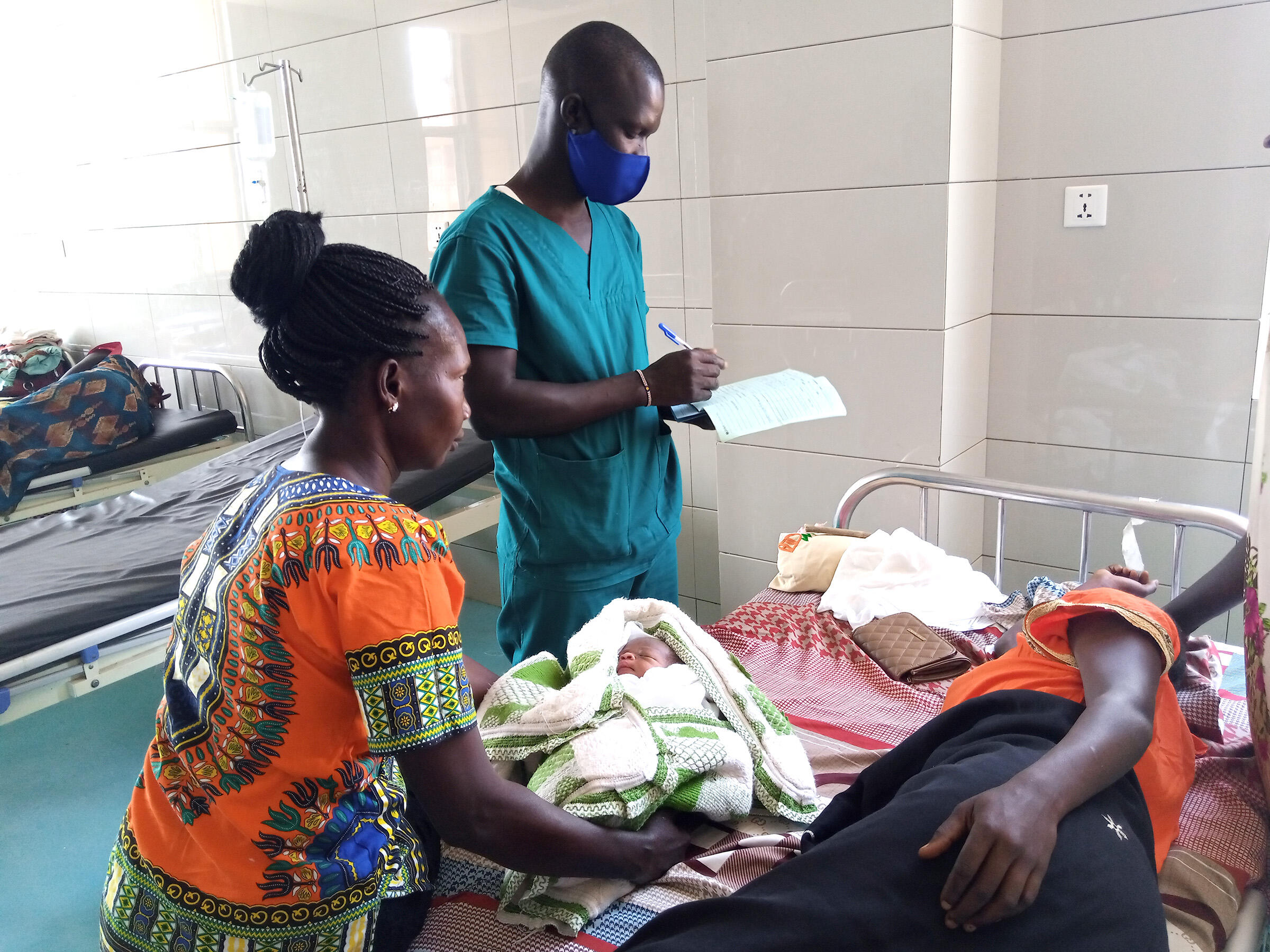“There is still so much to be done to achieve zero maternal deaths. Antenatal care and hospital deliveries should remain accessible for pregnant women during the pandemic,” says Kenyi Friday Lodu, a midwife at the Juba Teaching Hospital, as he expressed concern that COVID-19 could compromise the already poor maternal health in South Sudan.
Mr. Lodu is one of the nine new midwives recruited and deployed by UNFPA in 2020 to augment the number of frontline health workers to ensure continuity of midwifery services during the pandemic.
Mr. Lodu is one of the nine new midwives recruited and deployed by UNFPA in 2020 to augment the number of frontline health workers to ensure continuity of sexual and reproductive health services during the COVID-19 pandemic.
Without skilled birth attendants like midwives, maternal deaths and morbidity could increase. South Sudan currentlt has one of the highest maternal mortality ratios in the world at 1,150 deaths per 100,000 live births, according to a 2017 estimates by the UN and World Bank.
On an average week, about 90 mothers give birth at the Juba Teaching Hospital. “Mothers need antenatal care throughout the pregnancy, and all deliveries should be at the health facility with the assistance of skilled birth attendants,” Mr. Lodu says.
The deployment of additional midwives was one of the immediate actions UNFPA took to support the health system in responding to COVID-19. The new recruitments bring to 36 the number of midwives now deployed to 17 health facilities across the country under the Strengthening Midwifery Services Project supported by Canada and Sweden.
“The deployment of these additional boots came at the right time,” said Ms. Omjima Ezekiel, the ward-in-charge at the Juba Teaching Hospital. She said the presence of the additional midwives makes the workload manageable but equally important is the skills that they bring in caring for mothers and newborns.
Like other health professionals in all parts of the world, South Sudan’s health service providers are working in a very unique and difficult environment with the threat of COVID-19, which has also infected and claimed the lives of many healthcare workers worldwide.
Mr. Lodu is aware of the risks that he faces on a daily basis but he hopes that the standard precautions they are taking for health workers and their patients will keep them safe from the virus. While his safety is important for him, keeping births safe is also a priority.
“I really want to make my humble contribution to save the lives of mothers in South Sudan, especially in this time when COVID-19 is also a threat to them,” Mr. Lodu says, his smile obvious even as he spoke with a face mask.


